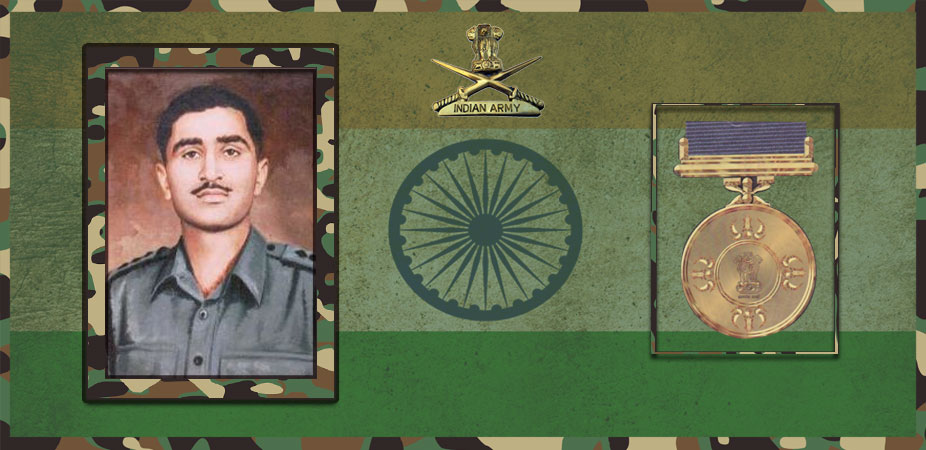Let's salute to our Indian Army together, We are proud to be Indian.
Let's salute to our Indian Army together, We are proud to be Indian.

Captain Gurbachan Singh Salaria, PVC (born 29 November 1935; Gurdaspur, Punjab– 5 December 1961) is an Indian military war hero, who was awarded the Param Vir Chakra, India’s highest wartime military award. In the 1988 television serial Param Vir Chakra by Chetan Anand, Captain G.S. Salaria was played by actor Brando Bakshi.
He was born in Gurdaspur, Punjab. He started his education at the famous Chail Military School, Chail,Shimla Hills(erstwhile King George School, Bangalore (more popularly known as King George Royal Indian Military College [KGRIMC], Chail) before moving to King George School, Jalandhar (now known as Chail Military School). He joined the 9th batch of National Defence Academy at Khadakwasla. He was in ‘Bravo’ squadron. His cadet number was 1317.
Commissioned in the 1st Gorkha Rifles (the Malaun Regiment) on 9 June 1957, he was posted to the third battalion of the Regiment. In 1961, Salaria was posted abroad with his battalion in Katanga.
After the Belgians quit Congo, a civil war situation developed in that country. When the United Nations decided upon military intervention to retrieve the situation, India contributed a brigade of around 3000 men to the U.N. force. In November 1961, the U.N. Security Council decided to put a stop to the hostile activities of the Katangese troops in Congo. This greatly angered Tshombe, Katanga’s secessionist leader, and he intensified his ‘hate the UN’ campaign. The result was more violence against UN personnel.
On 5 December 1961, a 3/1 GR Company supported by 3-inch mortar attacked a road-block, established by the Katangese troops, between HQ Katanga command and the Elizabethville airfield at a strategic roundabout. The enemy roadblock was destroyed and the Gorkhas established a UN roadblock there. When Captain Salaria, with his platoon, tried to link up with the Gorkha Company to reinforce the roadblock, he met strong opposition in the old airfield area. The enemy held the area strongly with two armoured cars and 90 men and brought down heavy automatic and small arms fire on his force from a dug-in position on the right flank. Undeterred by the superior enemy strength and firepower, Salaria decided to take the enemy, head-on, to achieve the objective. The Gorkhas then charged the enemy with bayonets, khukris and hand-grenades. A rocket launcher supported them in the attack. In this sharp encounter, Captain Salaria and his men killed 40 of the enemy and knocked out two enemy cars. His bold action completely demoralised the enemy who fled despite numerical superiority and well-fortified positions. In the engagement, Captain Salaria was wounded in the neck by a burst of enemy automatic fire. Ignoring the injury, he continued to fight till he collapsed due to excessive bleeding, dying subsequently of his wounds.
Captain Salaria’s actions prevented the Katangese rebels from encircling the UN Headquarters in Elisabethville. His leadership, courage, unflinching devotion to duty and disregard for personal safety were in the best traditions of the Indian Army and for which Captain Gurbachan Singh Salaria was posthumously awarded the highest wartime medal, Param Vir Chakra.